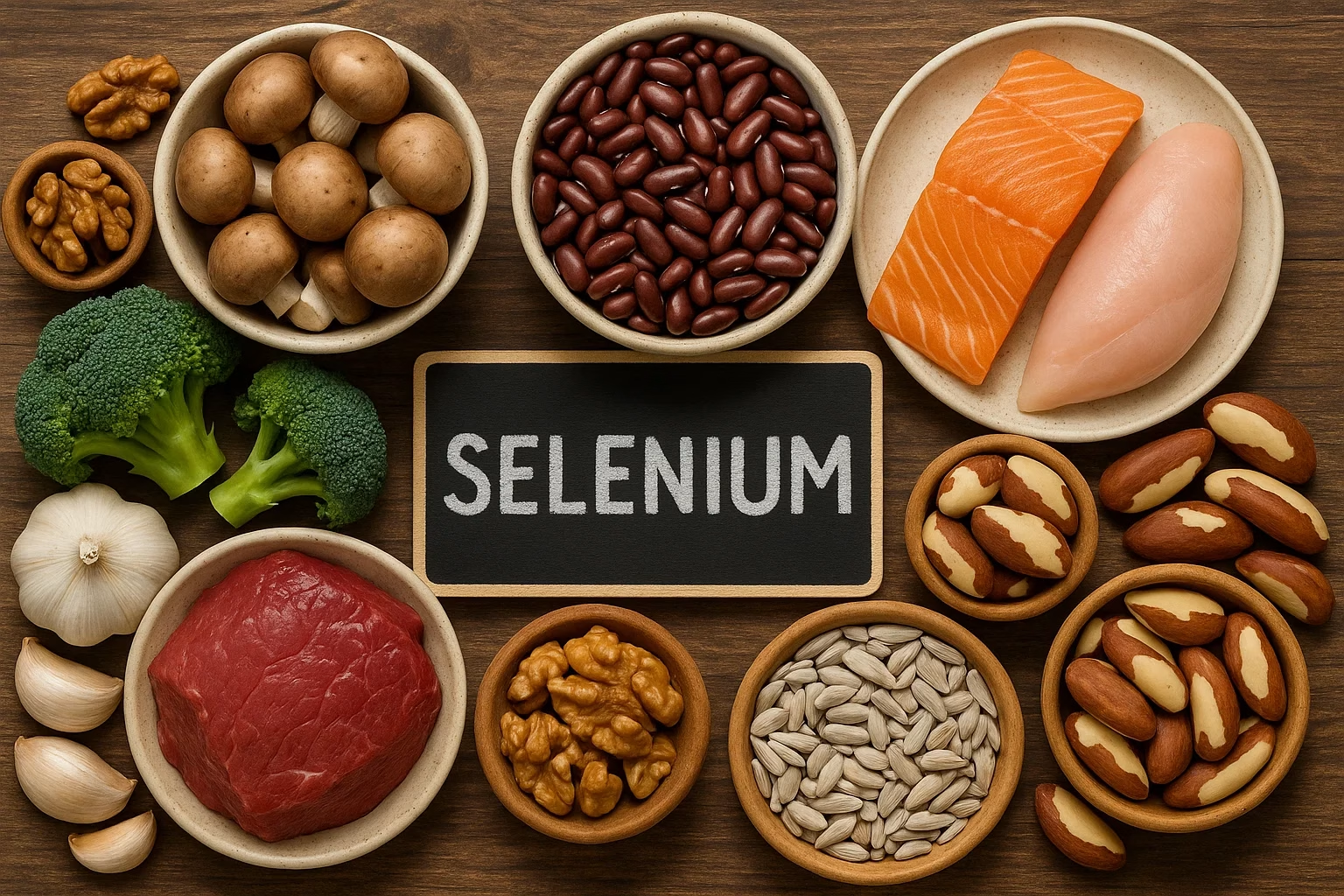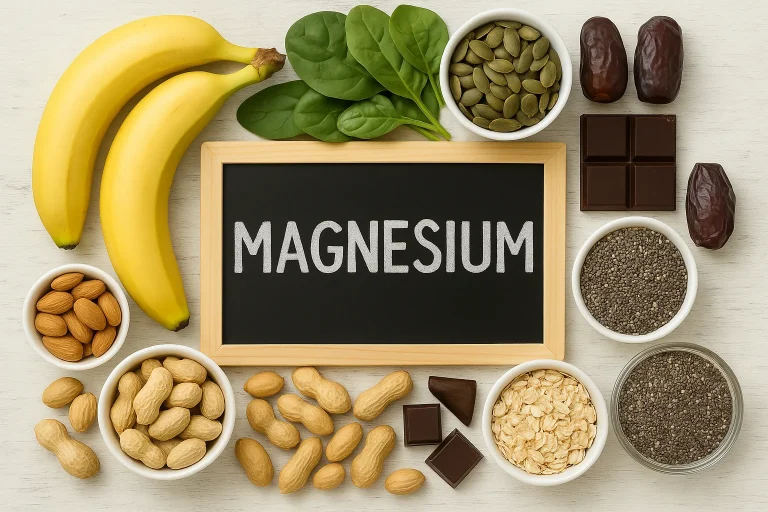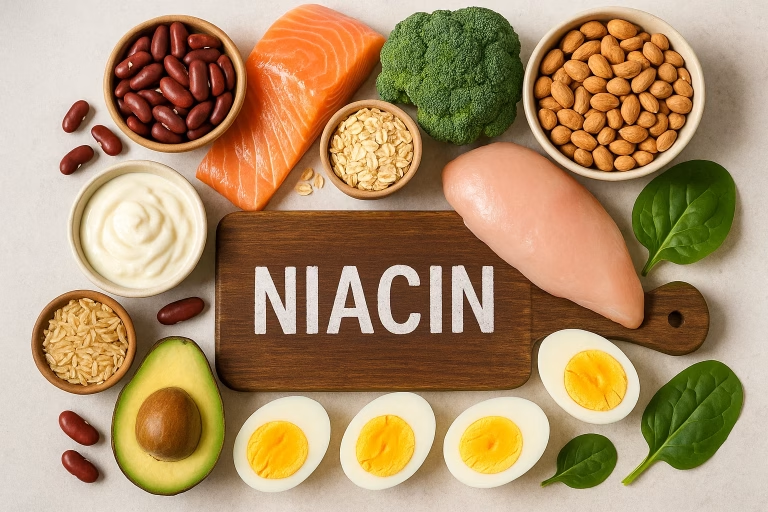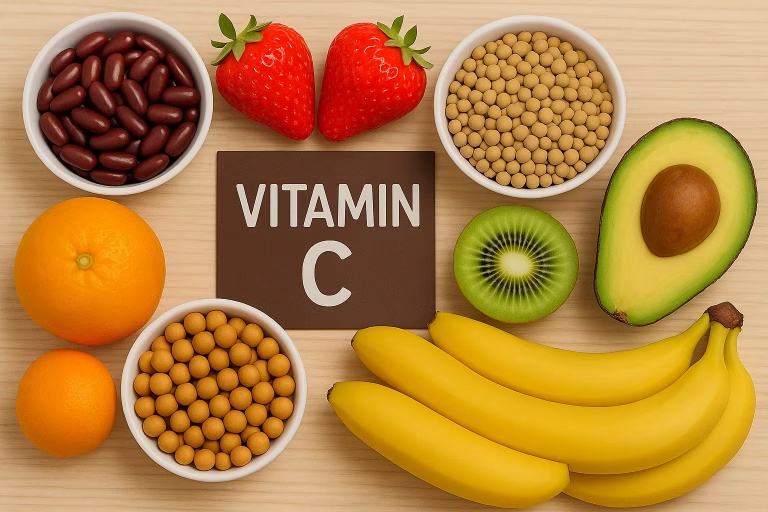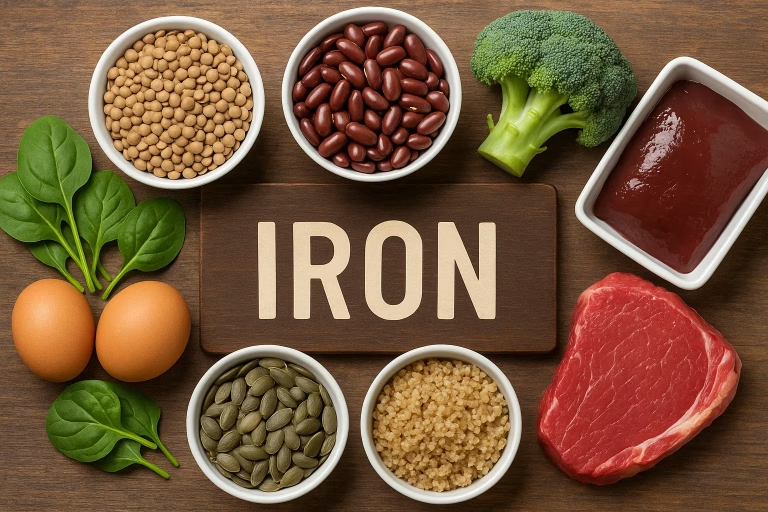Selenium Mineral Review: An In-Depth Guide for Adults Over 40
Selenium is a powerful trace mineral with wide-ranging benefits, particularly for adults over 40. Though only required in small amounts, selenium plays a big role in maintaining immune function, protecting against oxidative stress, supporting thyroid health, and promoting longevity. This mineral may not get as much attention as calcium or magnesium, but its impact on overall health is undeniable.
Why Selenium Matters More After 40
As the body ages, it becomes more vulnerable to chronic inflammation, oxidative stress, and hormonal imbalance. Selenium’s antioxidant role becomes increasingly important in combating these issues. Additionally, selenium supports cellular repair and immune defense, both of which tend to decline over time.
The Role of Selenium in Antioxidant Defense
Selenium is a key component of glutathione peroxidase, one of the body’s most critical antioxidant enzymes. This enzyme helps neutralize harmful free radicals that can damage DNA, proteins, and cell membranes. Oxidative stress has been linked to aging, cognitive decline, cardiovascular disease, and cancer — making selenium’s role even more crucial for healthy aging.
Thyroid Health and Selenium
The thyroid gland contains more selenium per gram than any other tissue in the body. Selenium helps convert the thyroid hormone T4 (inactive) to T3 (active), which is necessary for proper metabolism, energy regulation, and mood. Selenium deficiency has been associated with thyroid disorders, particularly Hashimoto’s thyroiditis and hypothyroidism.
Selenium’s Key Benefits for Adults Over 40
- Strengthens Immunity: Selenium boosts the production and efficacy of white blood cells. This can help the immune system fight off infections and reduce the risk of chronic inflammation.
- Protects the Heart: Some studies suggest selenium may reduce the risk of heart disease by decreasing inflammation and oxidative damage to arteries.
- Supports Brain Health: Antioxidant activity helps protect the brain from age-related diseases such as Alzheimer’s and Parkinson’s.
- Balances Hormones: Selenium supports hormone production and regulation, particularly for thyroid health, which influences metabolism and weight.
- Promotes Healthy Skin and Hair: By reducing oxidative stress, selenium helps maintain collagen, elasticity, and shine in aging skin and hair.
Signs You Might Need More Selenium
- Chronic fatigue or low energy
- Weak immune response or frequent illness
- Brain fog and memory issues
- Unexplained weight gain or cold sensitivity (thyroid-related)
- Hair thinning or brittle nails
Risk Factors for Deficiency
Selenium deficiency is more likely if you:
- Live in regions with low-selenium soil (e.g., parts of Europe and China)
- Follow a vegetarian or vegan diet with low selenium intake
- Have digestive issues that impair absorption, such as Crohn’s or IBS
- Are over 40 and under more oxidative or hormonal stress
Selenium-Rich Foods
While supplements can help, selenium is also available in several whole foods:
- Brazil nuts: Just one nut can exceed the daily requirement
- Seafood: Tuna, sardines, and shrimp
- Meats: Chicken, turkey, and beef
- Whole grains and eggs: In moderate amounts
However, selenium content varies greatly depending on the soil and region the food was grown or raised in — making supplementation a helpful backup, especially for those over 40.
Choosing the Right Selenium Supplement
Form Matters
There are two primary forms used in supplements:
- Selenomethionine: An organic form bound to the amino acid methionine; well absorbed and used by the body
- Sodium selenite: An inorganic form with lower bioavailability
Opt for selenomethionine when available, especially if you’re over 40 and want maximum benefit from lower doses.
Recommended Dosage
The daily recommended intake is 55 mcg for adults, but many experts suggest 100–200 mcg daily for those over 40 to gain additional health benefits. Avoid exceeding 400 mcg per day unless advised by a doctor, as excess selenium can be toxic.
Who Should Consider Selenium Supplements?
- Adults over 40 concerned with aging, immunity, or thyroid health
- People with poor diets low in selenium-rich foods
- Those taking thyroid medication (with doctor supervision)
- Anyone living in low-selenium soil regions
Potential Side Effects
Selenium is generally safe at appropriate dosages, but too much can lead to side effects:
- Garlic breath or metallic taste
- Nausea or diarrhea
- Hair loss and brittle nails (from chronic excess)
Always follow dosage instructions and consult a healthcare provider if in doubt.
Frequently Asked Questions (FAQ)
Can I get too much selenium from food?
It’s rare but possible, especially if you eat multiple Brazil nuts daily. Stick to 1-2 nuts per day for safety.
Is selenium good for fertility?
Yes. Selenium supports sperm quality and motility in men and hormone balance in women.
Does selenium interact with medications?
It may interact with chemotherapy, statins, or thyroid medication. Speak with a healthcare provider if you’re on any of these.
Conclusion: Is Selenium Worth It After 40?
Absolutely. Selenium plays a major role in defending against age-related decline and maintaining optimal energy, brain function, and immunity. For adults over 40, where the risk of deficiency and oxidative stress is higher, ensuring proper selenium intake can be a smart move for long-term wellness.
Whether through food or supplements, prioritize this often-overlooked mineral in your daily routine. It’s a small addition that can bring substantial health benefits.

